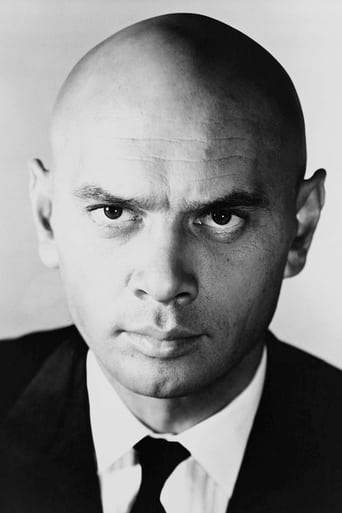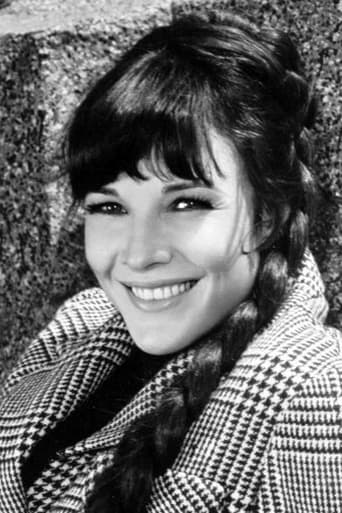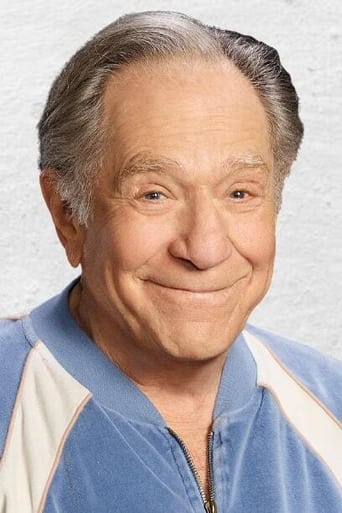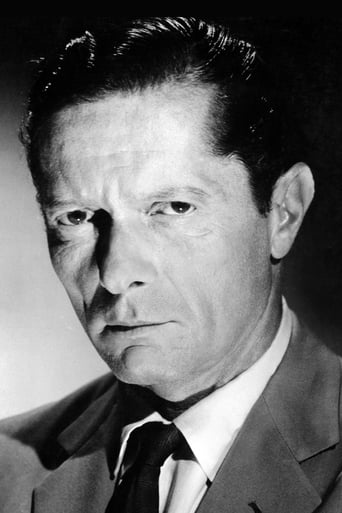Jugu Abraham
A very underrated western! Superb performances from Yul Brynner and Janice Rule. Arguably their best. Director Richard Wilson had worked with Orson Welles on his theater projects and that influence is evident in the adapted screenplay he wrote with his wife. The film questions the moral superiority of the Unionists over the Confederates. It asks, more importantly, if racism in USA is merely related to a white versus black confrontation or to white versus all non-whites (Mexicans, mulattos, cajuns, Native Indians, etc.). More than the action, the film is lifted by the spoken word (e.g., how an average American thinks Jules and Jewel are the same!) and misplaced morality. Needs to be more widely seen and appreciated.
zardoz-13
"Invitation to a Gunfighter" doesn't qualify as your typical horse opera. This loquacious, pretentious, and ultimately sluggish sagebrusher about racism and civil rights—a little ahead of its time—foreshadowed Clint Eastwood's "High Plains Drifter" about a gunfighter hired by a town to protect it from a trigger-happy former Confederate soldier. Clearly, producer & director Richard Wilson and wife Elizabeth had other ideas in mind when they contrived their offbeat screenplay from veteran television writer Alvin Sapinsley's adaptation of a story by "Johnny Carson's Tonight Show" monologue writers Hal Goodman and Larry Klein. "Invitation to a Gunfighter" bears the burden of social consciousness. Can you imagine its executive producer Stanley Kramer of "The Defiant Ones," "Guess Who's Coming to Dinner," "The Juggler," and "RPM" doing a picture that shunned racism and civil rights? Mind you, Kramer also produced the classic Gary Cooper oater "High Noon" and there is a touch of "High Noon" in "Invitation to a Gunfighter." Although Yul Brynner graces this frontier yarn with its striking presence and modulated performance, "Invitation to a Gunfighter" just isn't very memorable. For example, our anti-heroic gunman doesn't demonstrate his marksmanship until 43 minutes into the story and he provides only an exhibition of his shooting skills without actually either wounding or killing anybody.Ostensibly, the story takes place in the New Mexico Territory in 1865 after the conclusion of the American Civil War. A lone Confederate soldier, Matt Weaver (George Segal of "The Owl and the Pussycat"), who has spent five weeks walking home, returns to find his farm, where he had buried his mother, in the hands of a former Union soldier, John Medford (Russel Johnson of TV's "Gilligan's Island"), mustered out of General Grant's army. Naturally, Weaver is shocked by this revelation and rampages into Pecos to confront Brewster about the sale of his property. In the process, Weaver's arrival awakens several townspeople, chiefly, a one-armed former Union soldier Crane Adams (Clifford David of "Fort Apache the Bronx"), and Adams pursues Weaver into Brewster's house where he wounds him in the arm. The sheriff (veteran character actor Bert Freed) hauls Weaver off to jail where Doc Barker (Alfred Ryder) urges Weaver to hightail it out of town for good. They explain that his father's farm went on the auction block; Brewster bought it and sold it to Medford. Eventually Weaver kills Medford and occupies the property. The Civil War claimed its share of sons and husbands from the town of Pecos and has a dire shortage of young, fit, headstrong men prepared to confront the single Confederate. The town boss, Brewster (Pat Hingle of "Hang'em High") has dispatched Crane to Santa Fe to hire a gunslinger. When Crane shows up with a two-gun kid, Dancer (Dal Jenkins of "Will Penny"), who he has promised $300, Jules runs him out of town with the merest flick of his hand. Indeed, Jules stands in the shadows of a veranda and his presence scares Dancer off. Brewster is furious and Crane explains that the best gunfighter—Jules—had already left town. Jules step out of the shadows and presents himself to Brewster and the town. The hotel innkeeper recognizes the Creole gunslinger. Meanwhile, Brewster has trouble pronouncing Jules' name, so Jules give him a lesson in pronunciation. "Soft g, silent s," Jules teaches Brewster, "D'Estaig—just a touch of diphthong." Predictably, Brewster still cannot correctly pronounce Jules' name, but he forks over $500 to the stuck-up Creole gunfighter, Jules Gaspard d'Estaing (Yul Brynner of "The Magnificent Seven"), to kill Weaver. Brewster ignores the cries of Doc Barker who complains that Brewster is dispensing the legal right of due process so that Matt could tell his side of the story. Later, we learn that Medford lied to Weaver and forced him to kill him in self-defense. Jules, however, isn't your ordinary paid gunman. He has a mind of his own and dictates his own terms. He refuses to ride out to Weaver's ranch and kill him. Instead, he elects to stay in Pecos, board at the emporium, and wait for the starving, ammunition hungry Weaver to arrive so he can shoot it out with him.Later, we learn that Matt lose not only his farm but he also lost the woman that he wanted to wed, Ruth (Janice Rule of "The Swimmer") who has married the one-armed Crane. Initially, Crane argues against allowing Jules to board in the emporium, but Brewster wins out and Jules watches the stormy relationship between the unhappily married Crane and Ruth. Crane's loss of his arm has soured him and turned him to liquor. Crane can no longer play the harpsichord. Jules appears to be proficient with the musical instrument. Interestingly, Brynner would play a piano in Frank Kramer's "Adios, Sabata," several years later. Ruth wants to know if she can dissuade Jules from killing Matt. Jules sums up the town in a brief speech. "I'm in business for money and pleasure, too. A town that hires a gunfighter is always a henhouse with just one rooster, a few fat capons, a few clipped wings. What happens when a man with a gun walks in?" Nevertheless, Jules behaves oddly. He visits the Hispanic population across the bridge that divides the town into separate entities. The Hispanic spokesman confides in Jules about Matt, "He is the only man here who treats us like men." Indeed, the Mexicans bring food, but he still needs ammunition so he tries to steal from the emporium. Jules confronts Weaver but refuses to kill him initially because he wants to get an idea who is adversary is.The ending of "Invitation to a Gunfighter" is not what you would expect. The characters shoot off their mouths more than their six-guns. The dialogue is eloquent, but the action is virtually non-existent Brynner's "Magnificent Seven" co-star Brad Dexter is squandered in a superficial supporting role as a chiseling stable keeper who tries to sell the protagonist a lame horse.
Elswet
One thing you can say about Yul Brynner: Either he is awesome, or he sucks, there's little middle ground for Brynner. Unfortunately, this isn't one of his best "Cajun" gunslinger performances. George Segal's performance out-paces and outshines Brynner, but the real star of this work is Janice Rule.A town boss hires a gunslinger to kill an outcast, then hires the outcast to kill the gunslinger. Well, it's more complicated than that, but to go into it would spoil the comedic and dramatic twists.It's not terrible, but it's not great, either. All in all, it's only decent, and typical for its time.It rates a 5.3/10 from...the Fiend :.






